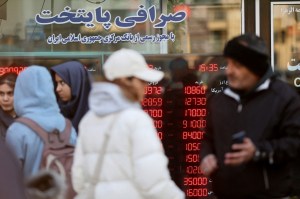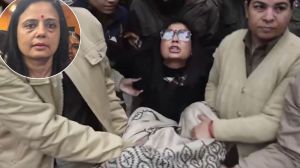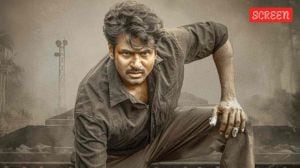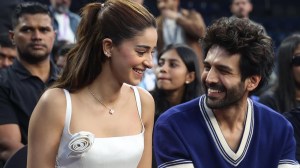Devdas music makes record Rs 12 cr
Devdas is all set to make a comeback 8212; undoubtedly as the year8217;s most eagerly awaited release 8212; thanks to film-maker Sanjay L...

Devdas is all set to make a comeback 8212; undoubtedly as the year8217;s most eagerly awaited release 8212; thanks to film-maker Sanjay Leela Bhansali. Already, the rights for its soundtrack have been purchased by Universal Music at a whopping price of Rs 12 crore. The album, already considered by some as Bollywood8217;s best music album ever, will be released by the company in the coming week.
8216;8216;The curiosity in the market for Devdas is unbelievable,8217;8217; says Universal Music8217;s Vinay Sapru, adding that 8216;8216;we are expecting to break many records with the album.8217;8217; After the unprecedented success of Bhansali8217;s last film 8212; 19998217;s Hum Dil De Chuke Sanam 8212; music buffs hope that the latest collaboration between Bhansali and music director Ismail Darbar will be as good, if not better than Hum Dil De Chuke Sanam. The album, with 11 songs, springs two big surprises for music lovers in the form of a new lyricist, and a virgin voice dominating the soundtrack.
Bhansali picked 18-year-old Shreya Ghosal to be the voice of Paro played by Aishwarya Rai when he saw her perform on TVS Saregama on television. Ghosal has recorded five songs on the Devdas soundtrack, and says she8217;s a colossal fan of Lata Mangeshkar 8212; that, she believes, did the trick with Lata-bhakt Bhansali. 8216;8216;He8217;s very difficult to please because he has a sharp ear, and is very critical. But for a young artiste like myself, it8217;s wonderful to have someone guide you to such perfection,8217;8217; Ghosal says of Bhansali.
Trained in classical music, Ghosal is personally inclined towards light singing, and believes it is the innocence in her voice that attracted Bhansali. 8216;8216;There8217;s no pretence in her singing. She8217;s uncorrupted and fresh,8217;8217; he says of his discovery. An arts student, Ghosal says she couldn8217;t have asked for a bigger break than Devdas.
Also making his debut on a film soundtrack is lyricist Nusrat Badr, a poet from Meerut after Bhansali heard the words he8217;d woven for ghazal albums for Pankaj Udhas and others. Badr has penned the lyrics for eight out of the nine songs which have already been filmed for the movie.
He says that the album does not have a classical flavour that many might expect, considering the period the film is set in, but has a certain purity and richness to it.
8216;8216;I wouldn8217;t say the words are modern, but they8217;re simple words which people of all generations can follow easily,8217;8217; he insists.
Badr says he intentionally didn8217;t watch Bimal Roy8217;s version of the film because he didn8217;t want to be influenced by it.
8216;8216;You will agree that there is freshness to the songs because the words are not typical.
Yet, convey exactly what needs to be conveyed.8217;8217; Explaining that there are really just three moods for songs in Hindi films 8212; joy, sorrow and anger 8212; Badr says lyricists need to reinvent themselves constantly so as not to appear stale.
Meanwhile, the movie itself is being anxiously awaited. Shrouded in total secrecy during its making, Bhansali8217;s film is the latest cinematic adaptation of Sarat Chandra Chatterjee8217;s classic novel. The novel has intrigued such veteran film-makers as P.C. Barua and Bimal Roy. Bhansali8217;s all-colour extravaganza, with a price tag of Rs 40 crore, is tipped to be among the summer8217;s most prominent releases.
- 01
- 02
- 03
- 04
- 05































